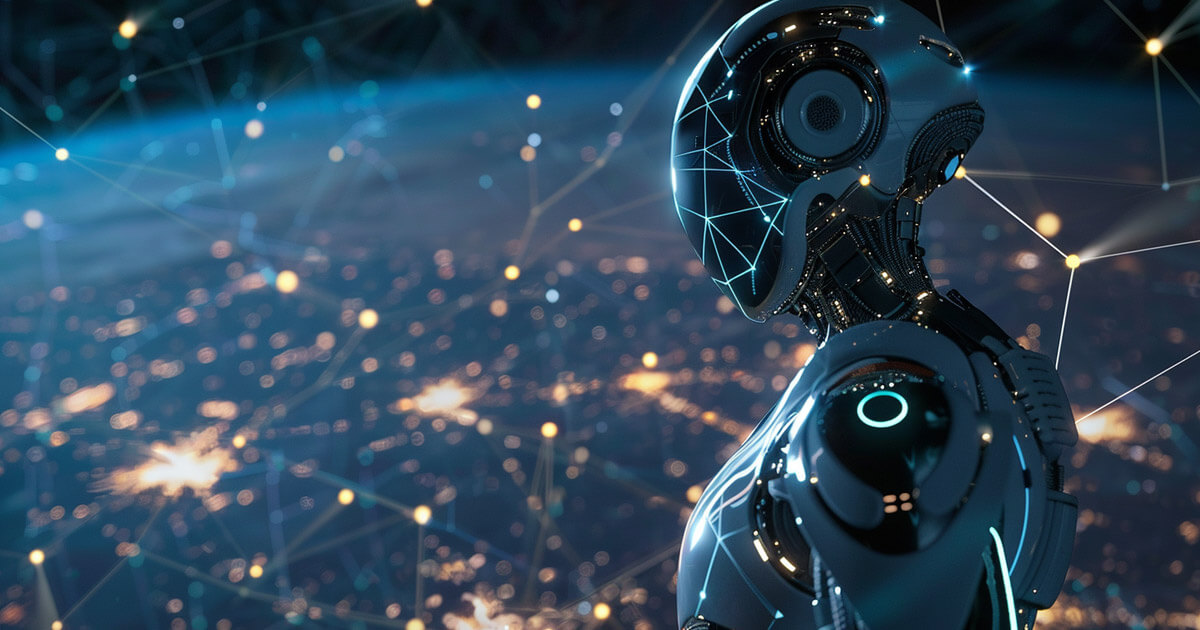The case for decentralized compute in AI
The following is a guest post by Jiahao Sun, CEO & Founder of FLock.io.
In the ever-evolving landscape of artificial intelligence (AI), the debate between centralized and decentralized computing is intensifying. Centralized providers like Amazon Web Services (AWS) have dominated the market, offering robust and scalable solutions for AI model training and deployment. However, decentralized computing is emerging as a formidable competitor, presenting unique advantages and challenges that could redefine how AI models are trained and deployed globally.
Cost Efficiency through Unused Resources
One of the primary advantages of decentralized computing in AI is cost efficiency. Centralized providers invest heavily in infrastructure, maintaining vast data centers with dedicated GPUs for AI computations. This model, while powerful, is expensive. Decentralized computing, on the other hand, leverages “unused” GPUs from various sources around the world.
These could be personal computers, idle servers, or even gaming consoles. By tapping into this pool of underutilized resources, decentralized platforms can offer computing power at a fraction of the cost of centralized providers. This democratization of compute resources makes AI development more accessible to smaller businesses and startups, fostering innovation and competition in the AI space.
Enhanced Accessibility of GPUs
The global shortage of GPUs has significantly impacted the ability of small businesses to secure the necessary computational power from centralized providers. Large corporations often lock in long-term contracts, monopolizing access to these critical resources.
Decentralized compute networks alleviate this issue by sourcing GPUs from a diverse array of contributors, including individual PC gamers and small-scale providers. This increased accessibility ensures that even smaller entities can obtain the computational power they need without being overshadowed by industry giants.
Data Privacy and User Control
Data privacy remains a paramount concern in AI development. Centralized systems require data to be transferred to and stored within their infrastructures, effectively relinquishing user control. This centralization poses significant privacy risks. Decentralized computing offers a compelling alternative by keeping computations close to the user. This can be achieved through federated learning, where the data remains on the user’s device, or by utilizing secure decentralized compute providers.
Apple’s Private Cloud Compute exemplifies this approach by integrating several iCloud compute nodes around a specific user, thereby maintaining data privacy while leveraging cloud computational power. Although this method still involves a degree of centralization, it underscores a shift towards greater user control over data.
Verification Protocols and Security
Despite its advantages, decentralized computing faces several challenges. One critical issue is verifying the integrity and security of decentralized compute nodes. Ensuring that these nodes are not compromised and that they provide genuine computational power is a complex problem.
Advances in blockchain technology offer potential solutions, enabling self-proofing mechanisms that verify the legitimacy of compute nodes without compromising security.
Preserving Data Privacy in Decentralized Systems
Another significant challenge is the potential exposure of personal data during decentralized computations. AI models thrive on vast datasets, but without privacy-preserving technologies, decentralized training could risk data breaches. Techniques such as Federated Learning, Zero-Knowledge Proofs, and Fully Homomorphic Encryption can mitigate these risks.
Federated Learning, widely adopted by major corporations since 2017, allows data to remain local while still contributing to model training. By integrating these encryption and privacy-preserving technologies into decentralized compute networks, we can enhance data security and user privacy, pushing the boundaries of what decentralized AI can achieve.
Bandwidth and Efficiency Concerns
The efficiency of decentralized compute networks is another area of concern. The transmission efficiency in a decentralized system will inevitably lag behind centralized clusters due to the distributed nature of the network. Historical anecdotes, such as AWS transferring data from Toronto to Vancouver during a snowstorm, highlight the logistical challenges of data transmission.
However, advancements in AI techniques like LoRA fine-tuning and model compression can help mitigate these bandwidth bottlenecks. By optimizing the data transfer processes and refining model training techniques, decentralized compute networks can achieve performance levels that are competitive with their centralized counterparts.
Bridging the Gap with Emerging Technologies
The integration of blockchain technology with AI offers a promising avenue for addressing many of the challenges faced by decentralized computing. Blockchain provides a transparent and immutable ledger for tracking data provenance and compute node integrity. This ensures that all participants in the network can trust the data and computations being performed.
Additionally, blockchain’s consensus mechanisms can facilitate decentralized governance, enabling communities to collectively manage and improve the network.
Moreover, advancements in Federated Learning and Homomorphic Encryption are pivotal in ensuring that data privacy is maintained while leveraging the distributed nature of decentralized compute networks. These technologies enable AI models to learn from distributed datasets without exposing sensitive information, thereby balancing the need for vast amounts of data with stringent privacy requirements.
The Future of Decentralized Compute in AI
The potential of decentralized compute networks to revolutionize AI development is immense. By democratizing access to computational resources, enhancing data privacy, and leveraging emerging technologies, decentralized AI can offer a robust alternative to centralized systems. However, the journey is fraught with challenges that require innovative solutions and collaborative efforts from the AI and blockchain communities.
As we move forward, we must continue exploring and developing decentralized computing solutions that address these challenges. By fostering a collaborative ecosystem, we can ensure that the benefits of AI are accessible to all, promoting a more equitable and innovative future for AI development.
The post The case for decentralized compute in AI appeared first on CryptoSlate.






